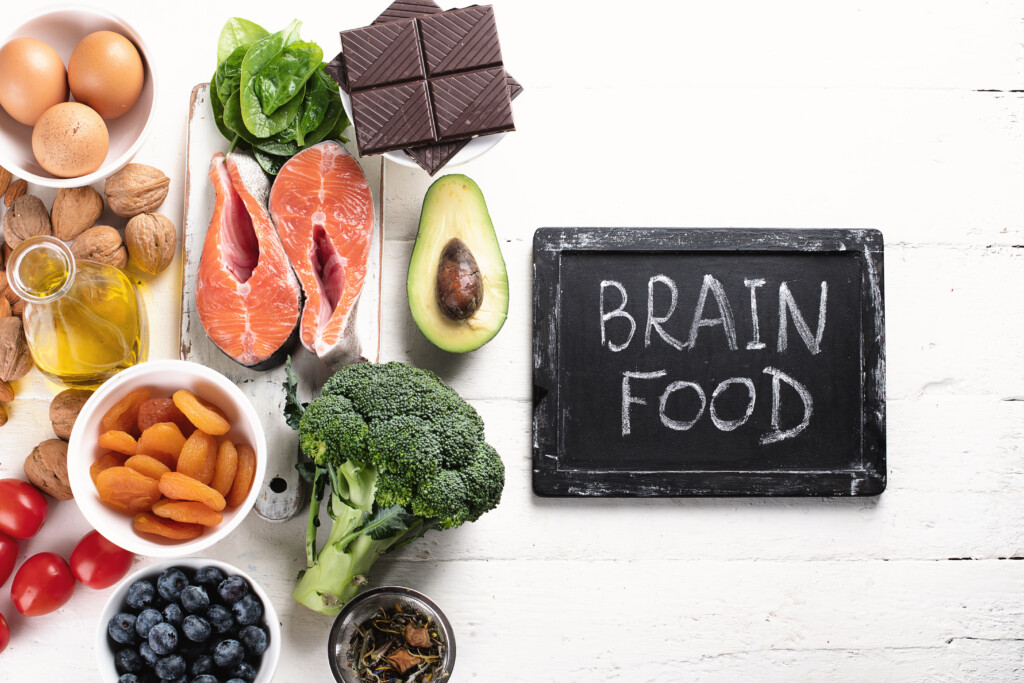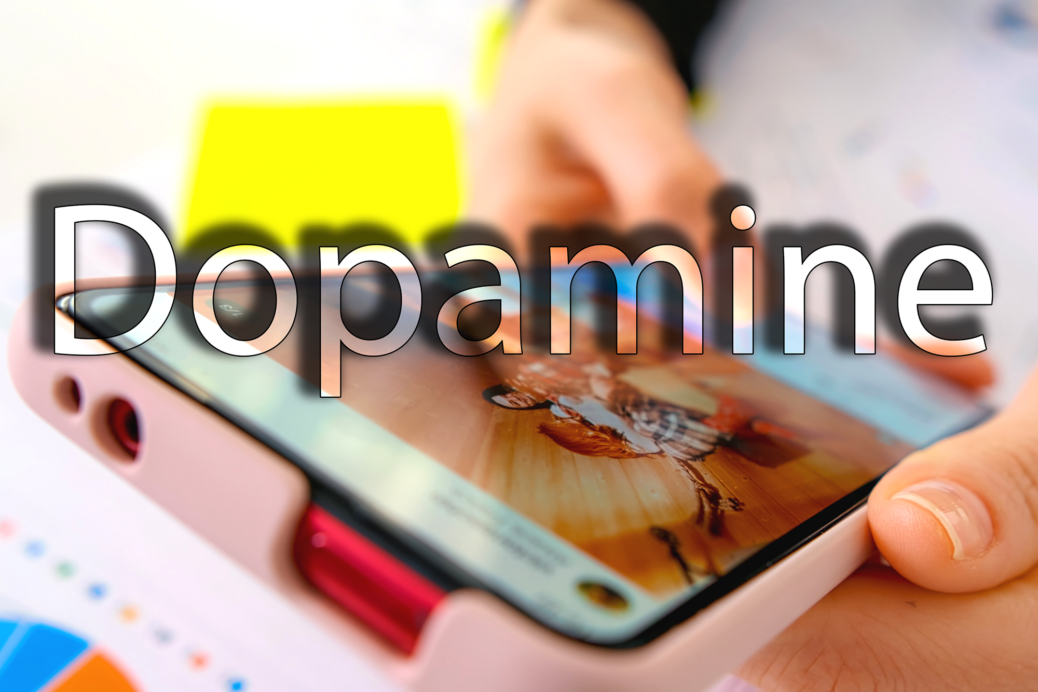Dopamine Detox: Breaking Free from Short-Term Pleasures
Introduction
We live in a world that is constantly bombarding us with instant gratification. But what could possibly be wrong with scrolling on our phones for just another hour or indulging in just one more chip? These small joys can briefly boost our mood and in moderation, aren’t harmful – because of dopamine. However, there is a link between the dopamine they provide and your depression.
In this post, we’ll dive into the complex connection between dopamine, depression, and the advantages of nurturing enduring, healthful habits that enrich both your mind and body.
What is Dopamine?

Dopamine is a neurotransmitter, often called the “feel-good” brain chemical. It is responsible for giving us feelings of pleasure and reward from our actions. And it can influence our motivation, our learning, and our social bonds. Here are just some of the things dopamine is responsible for1:
- Strongly associated with pleasure as part of the brain’s reward system
- Helps increase attention and motivation, and stimulates creativity
- Helps us be more social/extroverted and helps us form relationships
- Plays an important role in memory, particularly short-term memory
Dopamine & Depression
Research has shown there is a connection between dopamine and depression. You may have heard depression is strongly associated with serotonin, another neurotransmitter. However, dopamine deficiency can significantly contribute to depression symptoms by causing a lack of motivation, difficulty concentrating, and persistent feelings of hopelessness and helplessness2.
Short-Term Dopamine Sources

Various things can provide dopamine in the body, but it’s important to make the distinction between short-term dopamine, and long-term dopamine: Short-term dopamine is released in response to activities that provide immediate pleasure, associated with pleasure and reward.
Research shows that over-reliance on short-term dopamine sources can lead to problems like addiction, poor impulse control, depression, anxiety, irritability, and insomnia3, 4, 5. It’s because you start craving more of the dopamine reward that is caused by pleasant experiences, which is why people sometimes get addicted to these activities. Simply put, our brains have not had time to evolve and adapt to the constant stream of short-term dopamine we are given, so it can be hard to break the cycle.
Here are some common sources of short-term dopamine to be mindful of:
- Eating foods high in sugar or fat
- Excessive internet usage, scrolling, or gaming
- Shopping
- Gambling
- Addictive substances (drugs, alcohol, etc.)
- Sexual activities (masturbation, porn, etc.)
Again, these sources can be acceptable in moderation. However, they have become readily available, making them far too easy to indulge in excessively. The thrill and novelty seeking that these sources offer may seem appealing, but the long-term consequences are far from pleasurable.
Healthy Habits & Long-Term Dopamine Sources
In contrast, long-term dopamine is released in response to activities that provide long-term benefits, associated with motivation and goal-directed behavior. Essentially, the cultivation of consistent healthy habits that can replenish your dopamine levels naturally. These habits provide a sustainable source of dopamine and also contribute to your overall mental health.
Here are some ways to increase long-term dopamine levels:

- Eating foods high in protein
Protein is made up of amino acids, one of which is called tyrosine. It is important in the production of dopamine. Eating a balanced diet with plenty of protein from foods like turkey, eggs, beef, legumes, soy, and low-fat dairy helps ensure that your body has what it needs to maintain the proper dopamine levels.6
- Get enough sleep
Lack of sleep has been shown to reduce concentrations of many neurotransmitters, including dopamine.7
- Listen to music
Research has shown listening to music helps increase dopamine levels and improve mood.8
- Spend time outside
Increasing sunlight exposure can help raise dopamine levels.9
- Practicing mindfulness through meditation, deep breathing, etc.
Mindfulness practices can help reduce stress and increase dopamine levels.10
Conclusion
Moving away from short-term dopamine sources might be the answer to your struggles with motivation and impulsivity. For those grappling with depression, understanding this complex relationship between dopamine and your mood can help you gain control over it again. By turning towards cultivating healthy habits instead, you can create a sense of joy and drive that lasts. Nurturing your mental health with these habits can be the key to a brighter and more fulfilling life.
Stay informed and receive resources and site updates by subscribing to our Newsletter!
References
- Cleveland Clinic. (2022, March). Dopamine. https://my.clevelandclinic.org/health/articles/22581-dopamine
- Watson, S. (2021). Dopamine: The pathway to pleasure. Harvard Health. https://www.health.harvard.edu/mind-and-mood/dopamine-the-pathway-to-pleasure
- Wise, R.A., Jordan, C.J. Dopamine, behavior, and addiction. J Biomed Sci 28, 83 (2021). https://doi.org/10.1186/s12929-021-00779-7
- Healthdirect Australia. (n.d.). Dopamine. Healthdirect. https://www.healthdirect.gov.au/dopamine
- Hu, E. (2022, April 4). Too much pleasure can lead to addiction. How to break the cycle and find balance. NPR. https://www.npr.org/2022/03/31/1090009509/addiction-how-to-break-the-cycle-and-find-balance
- Kühn S, Düzel S, Colzato L, Norman K, Gallinat J, Brandmaier AM, Lindenberger U, Widaman KF. Food for thought: association between dietary tyrosine and cognitive performance in younger and older adults. Psychol Res. 2019 Sep;83(6):1097-1106. doi: 10.1007/s00426-017-0957-4. Epub 2017 Dec 18. PMID: 29255945; PMCID: PMC6647184.
- Korshunov KS, Blakemore LJ, Trombley PQ. Dopamine: A Modulator of Circadian Rhythms in the Central Nervous System. Front Cell Neurosci. 2017 Apr 3;11:91. doi: 10.3389/fncel.2017.00091. PMID: 28420965; PMCID: PMC5376559.
- Ferreri, L., Mas-Herrero, E., Zatorre, R. J., Ripollés, P., Gomez-Andres, A., Alicart, H., Olivé, G., Marco-Pallarés, J., Antonijoan, R. M., Valle, M., Riba, J., & Rodríguez-Fornells, A. (2019). Dopamine modulates the reward experiences elicited by music. Proceedings of the National Academy of Sciences of the United States of America, 116(9), 3793–3798. https://doi.org/10.1073/pnas.1811878116
- Munir, S. (2023, March 20). Seasonal Depressive Disorder. StatPearls – NCBI Bookshelf. https://www.ncbi.nlm.nih.gov/books/NBK568745/
- Kjaer TW, Bertelsen C, Piccini P, Brooks D, Alving J, Lou HC. Increased dopamine tone during meditation-induced change of consciousness. Brain Res Cogn Brain Res. 2002 Apr;13(2):255-9. doi: 10.1016/s0926-6410(01)00106-9. PMID: 11958969.



